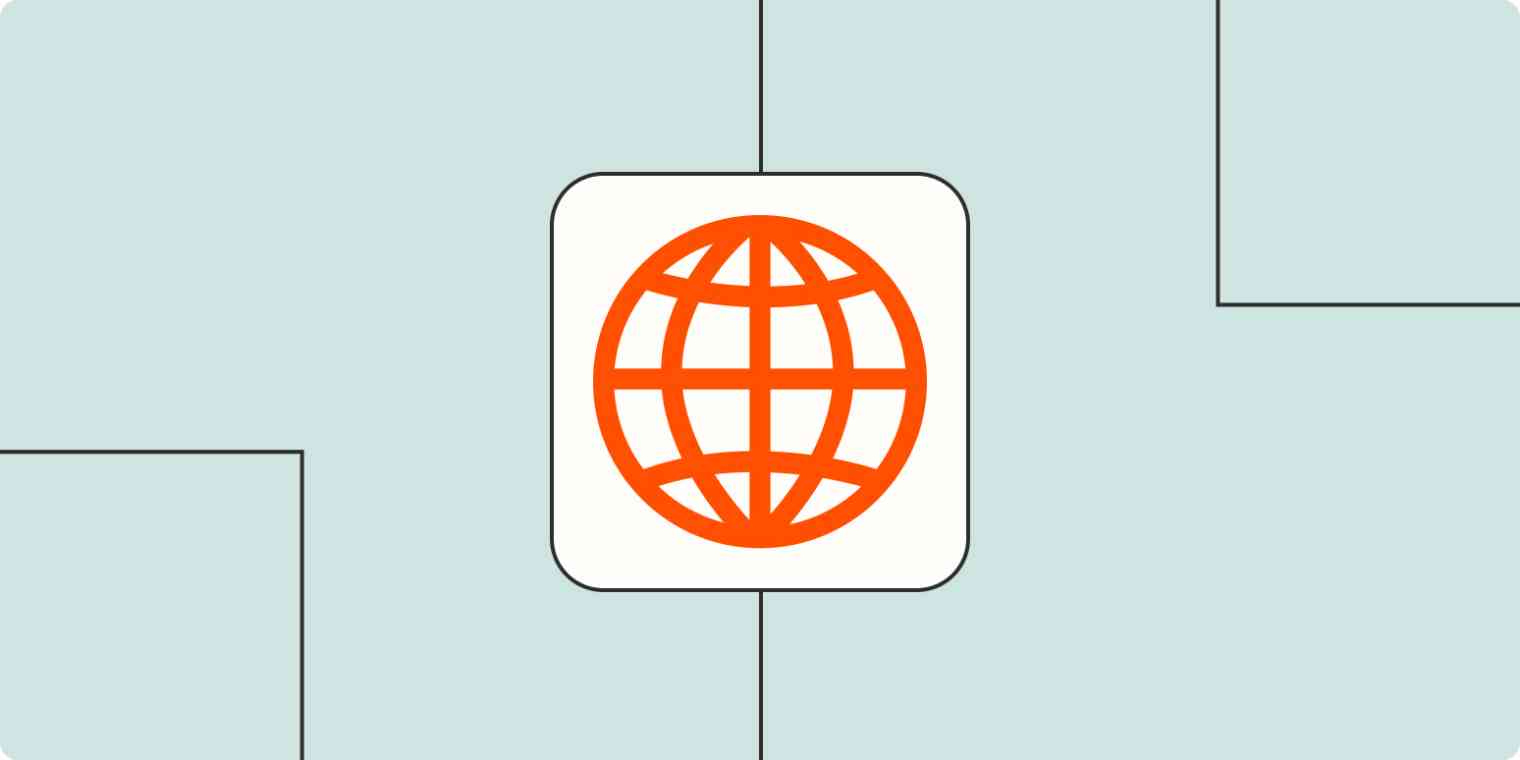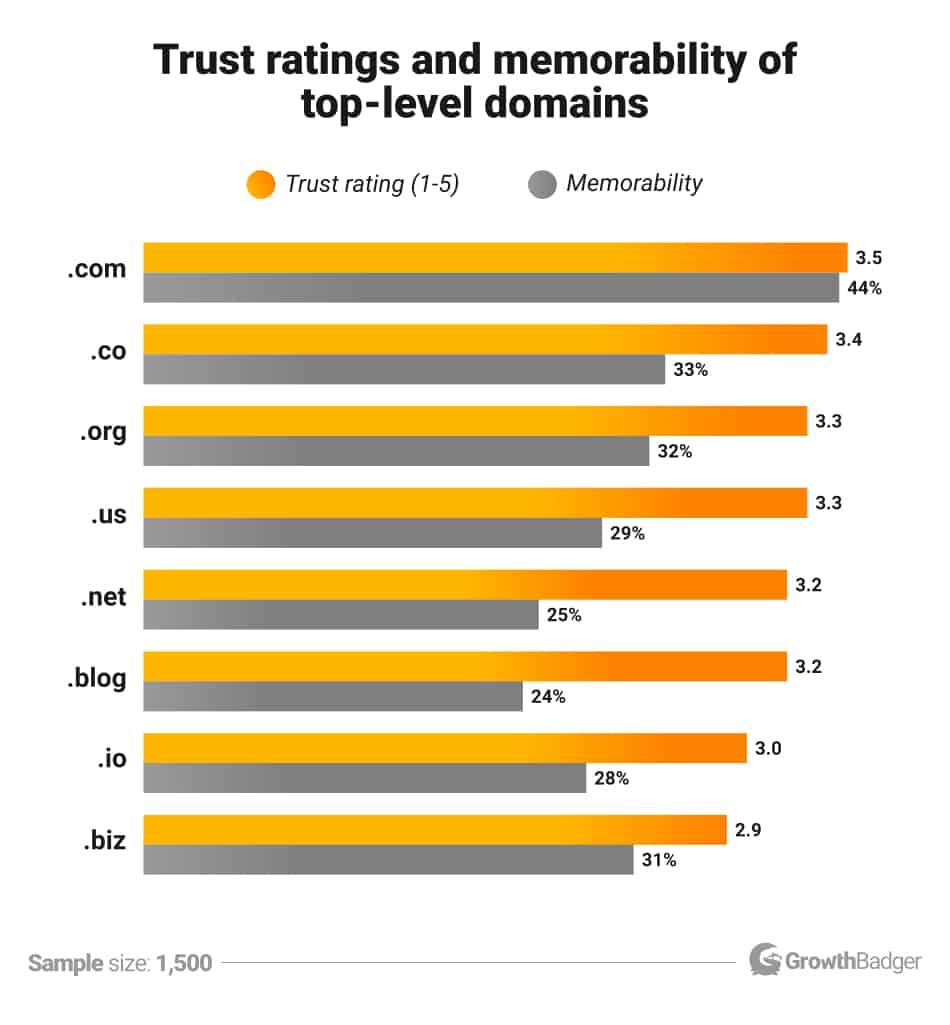Your domain extension is basically part of your company name. In some cases, it's literally part of your company name. monday.com goes by monday-dot-com. SimplyBook.me is simply-book-me. But even if it's not what people know you by, your domain extension matters.
I've been building and writing about websites for almost a decade, and here I'll dig into everything there is to know about domain names. If you're here because the .com you wanted is taken, I'll help you understand your .org, .co, and .net options.
But first, let's talk about why those little letters at the end of a URL are so important to begin with.
What are domain extensions?
Domain extensions are an organizational tool of the domain name system (DNS), meant to help people find and load websites more conveniently. Also known as top-level domains (TLDs), domain extensions are essentially internet shortcuts that create URLs that are easier to memorize. Without them, the alternative would be knowing and entering a website's internet protocol (IP) address, which is a long, confusing string of numbers that I promise you don't want to type.
There are three categories of TLDs:
Generic TLD (gTLD). These are the main domain extensions, including .com, .org, and .co.
Sponsored TLD (sTLD). These domains are regulated by certain organizations or agencies to ensure their rules are upheld; for example, .gov or .edu.
Country-code TLD (ccTLD). These are two-letter extensions for specific countries or territories, such as .us or .uk.
That's all well and good for the backend of the internet, but what does it have to do with individuals trying to find a URL for their website?
Aside from their technical duties, domain extensions signal to visitors what kind of site you are. And, yes, your potential customers are going to draw conclusions about your business based solely on your URL, especially if it's their first time hearing of you.
There are two factors you need to consider before choosing a domain extension:
Is it trustworthy? Trust is often associated with domain extensions. By now, most people are familiar with scam sites and malware, so they'll be more reluctant to visit a site with an extension they don't recognize. The bare minimum is using one of the recognized TLDs as opposed to a random extension like .pizza (sorry). But even among the common TLDs, some are more trustworthy than others—after all, scammers can (and do) use popular domain extensions, too.
Is it memorable? You want a URL that's memorable, so people can visit it without a link or prompt. People generally assume a website will end in .com, which gives .com an advantage over other extensions, but you can still make an unforgettable URL with another extension.
GrowthBadger recently conducted a study on the trust and memorability for the most popular TLDs. Here's what they found:
The best domain extensions for your business: .com vs. .org and other TLDs
Let's look at the difference between .com and .org, along with your other options.
.com
The .com domain has symbolized websites—and even the entire web—since the early days of the internet (remember the dot com boom?). It's easily both the most trustworthy and most memorable of all the domain extensions. So, if your URL is available in a .com for an affordable price, you should take it. The problem is that's rarely the case. By now, most of the .com website names have been bought up, so you either have to buy a URL at an inflated rate or be creative with your name until you find a URL that's available.
If the price isn't manageable for you, I'd recommend shopping around with the other domain extensions to see if you can find a viable—and more affordable—alternative.
.co
The .co domain is actually the country-code domain (ccTLD) for Colombia. But given its similarity to .com—and Colombia's willingness to sell its domain extension worldwide—it has since evolved into a mainstay domain extension that most people just assume means "company." Overall, .co is a good .com alternative if your first choice isn't available. It's easy to remember and people tend to trust it.
The main drawback of .co is that people will often confuse it with a .com counterpart. For example, if you're using CoolJeans.co because CoolJeans.com is already taken, a lot of your visitors will mistakenly go to CoolJeans.com. And if you're both in the same business—selling cool jeans, of course—you're essentially handing your customers over to your competitor.
.org
The .org domain originated as an extension exclusively for non-profits, but now it's available for anyone. That makes it another good backup if your first-choice .com is taken. It's easier to differentiate from a .com counterpart, giving it a distinct advantage over .co, even if it slightly trails in trust and memorability (according to GrowthBadger's research).
Of course, distinguishing a .org site from its .com counterpart isn't foolproof. Think: WordPress.org and WordPress.com—most people don't know the difference.
.net
I'm not going to sugarcoat it: it may be popular, but .net isn't a great choice for a domain extension. It's really a last-resort option. I'm probably not the only one who gets a little concerned going to a .net site. It's often associated with scam sites that try to rip off popular .com names—sometimes even posing as those sites to phish the user's account and password.
ccTLDs (by country)
The ccTLDs are a good middle choice—a safe bet if the high-priority options are unavailable.
You can even consider using other countries' ccTLDs to get some wordplay into your URL. For example, Montenegro's .me extension is popular for portfolio sites, and Italy's .it is ripe for the punning. If the regulations permit it, you can even use a country's domain extension if you're trying to expand internationally and break into that market, as a means to build trust with that country's population.
Just keep in mind that each country has its own guidelines for who can use its domain name. For example, the U.S. only allows American citizens or companies registered in the U.S. to use .us, whereas Colombia allows virtually anyone to use .co.
Note: ccTLDs can come across as patriotic, which could work for or against you, depending on your brand.
What's the best domain extension in 2022?
The bottom line is: if you can, go with .com. But there are a lot of conditional factors to consider. If you stick with .com, how much do you have to adapt the company name to make it work? Is .com still worth it if you have to add two or three extra words just to get a fresh URL?
At that point, it may be better to keep your original name and choose a less popular domain like .org or .co, or try a ccTLD that vibes with your brand.
When all else fails, you can always use .pizza. (Please don't.)







